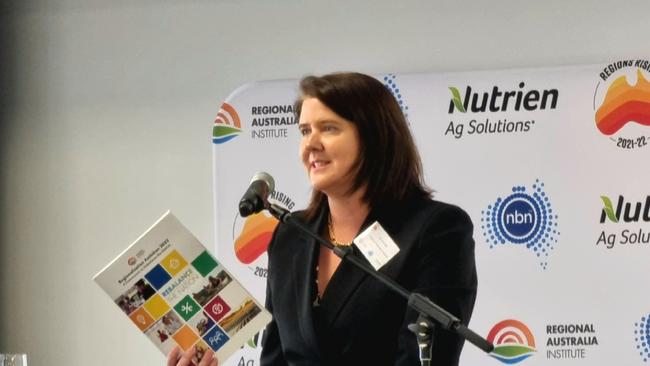Regional Australia’s poor education report card
Healthcare and education in the regions continue to fall behind metro regions, a new report has found. And it’s having a dramatic impact on bush communities.
The gap between the city and country for health and education results and resources is widening, a new report has found.
An analysis by the Regional Australia Institute shows school attainment rates across the regions declined between 2021 and 2022, from 71.4 per cent to 67.3 per cent, while regional NAPLAN results shows more than 54 per cent of remote students need additional support.
Meanwhile, the regional healthcare sector reported mixed results, with the number of allied health professionals in the regions decreasing to 23 per cent in 2022. while number of medical practitioners increased to 353 full-time equivalent per 100,000 population in the same period.
The figures are detailed in the Regional Australia’s Institute’s Year Two Progress report on its regionalisation ambition framework, which is working to guide investment and structured development on regional and rural assets, infrastructure, and communities.

RAI chief executive Liz Ritchie said while great work has been achieved in the past two years, “there’s more work to be done” in unifying the investment of regional Australia.
“We’ve seen a drop in recruitment difficulty, an increase in GDP, and more medical practitioners making their way to the regions. There are great things happening, but we can do more,” Ms Ritchie said.
“Looking at education, there’s some direct correlation with what happened in Covid and the sentiment shift around kid’s mental health and what happened socially and mentally across the country. But ultimately, there’s a big push for greater funding for public schools across the country, and regional Australia would benefit from that more so than the city, because in many cases there are no other options than the public system.”
Ms Ritchie said issues such as housing and migration settings needed to be addressed in a unifying way.
“The fact is it’s not integrated enough and we don’t have that overarching plan,” Ms Ritchie said.
“There are always political headwinds garnering more attention, and I don’t think regional Australia is getting the attention it deserves.
“You won’t solve any one of these challenges unless you start thinking about an integrated plan with regional Australia at its heart.”
Isolated Children’s Parents’ Association federal president Louise Martin said regional Australia’s contribution to the GDP per person was stronger than those in metro regions.
“And what are we getting in return? There’s pressure on primary producers to be cleaner and greener and how can we do that if we’re not going to educate our kids?” Ms Martin said.
Ms Martin said the lack of investment and support for regional and remote education had a wide-ranging effect on communities and families.
“They’re most likely going to leave our communities, leaving a void for someone to fill roles,” Ms Martin said.
“We need access to early intervention, teachers and allied health professionals in the education system to support kid from the get go.
“Disadvantage doesn’t discriminate, and we need financial support and teacher support.”





